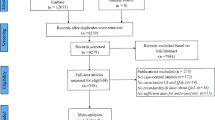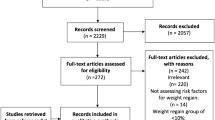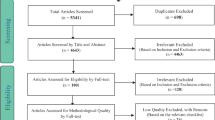Abstract
Purpose
Health-related quality of life (HRQL) is not well studied in proctocolectomy patients with pediatric onset of ulcerative colitis (UC). We aimed to (1) compare the HRQL of proctocolectomy patients with those treated with conventional therapy and (2) determine factors that influence HRQL in UC patients < 18 years.
Methods
Chart review was done on patients diagnosed with pediatric onset of UC (<18) at the Stollery Children’s Hospital. HRQL was evaluated in 88 patients using disease- and age-specific questionnaires; IMPACT III (<18) and Inflammatory Bowel Disease Questionnaire (IBDQ; ≥18). Demographics, disease characteristics, disease index (PUCAI), HRQL EuroQoL visual analog scale (EQ-5D/VAS) were collected and analyzed from all patients.
Results
Sixty-five respondents completed the IMPACT III (74 %) and 23 patients completed the IBDQ (26 %). Thirty-three surgical patients (34 %) responded (mean IMPACT III score = 148.9 ± 12.7; mean IBDQ = 171.2 ± 40.1). There was no significant difference in IMPACT III scores of surgical patients vs. medically treated patients (148.9 ± 12.7 vs. 140.6 ± 19.4, p = 0.09). Patients with high IMPACT scores (>143 points) were most likely to be in remission (p = 0.05), they were less likely to be on medication (p < 0.05), have parent/guardian with postsecondary education (p = 0.01), did not suffer from fatigue (p < 0.01), and did not report depression (p < 0.02). The IMPACT correlation with PUCAI (adjusted r 2 = 0.33) and EQ-VAS (adjusted r 2 = 0.45) was strong.
Conclusions
Surgical patients reported to have a HRQL comparable to or better than the nonsurgical patients. Depression, fatigue, parent/guardian education, and drugs influence HRQL.


Similar content being viewed by others
Abbreviations
- Doctor’s GA:
-
Doctor’s global assessment
- EQ-5DTM :
-
EuroQol-5 Dimensions
- EQ-5DTM VAS:
-
EuroQol visual analog scale
- HRQL:
-
Health-related quality of life
- IBDQ:
-
Inflammatory bowel disease questionnaire
- PUCAI:
-
Pediatric ulcerative colitis activity index
- UC:
-
Ulcerative colitis
References
Hjortswang H, Strom M, Almer S (1998) Health-related quality of life in Swedish patients with ulcerative colitis. Am J Gastroenterol 93(11):2203–2211
Scarpa M, Angriman I, Ruffolo C, Ferronato A, Polese L, Barollo M, Martin A, Sturniolo GC, D’Amico DF (2004) Health-related quality of life after restorative proctocolectomy for ulcerative colitis: long-term results. World J Surg 28(2):124–129
Van Assche G, Vermeire S, Rutgeerts P (2011) Management of acute severe ulcerative colitis. Gut 60(1):130–133
Aratari A, Papi C, Clemente V, Moretti A, Luchetti R, Koch M, Capurso L, Caprilli R (2008) Colectomy rate in acute severe ulcerative colitis in the infliximab era. Dig Liver Dis 40(10):821–826
Bach SP, Mortensen NJ (2006) Revolution and evolution: 30 years of ileoanal pouch surgery. Inflamm Bowel Dis 12(2):131–145
Manosa M, Lopez San Roman A, Garcia-Planella E, Bastida G, Hinojosa J, Gonzalez-Lama Y, Masnou H, Domenech E (2009) Infliximab rescue therapy after cyclosporin failure in steroid-refractory ulcerative colitis. Digestion 80(1):30–35
Gower-Rousseau C, Dauchet L, Vernier-Massouille G, Tilloy E, Brazier F, Merle V, Dupas JL, Savoye G, Balde M, Marti R, Lerebours E, Cortot A, Salomez JL, Turck D, Colombel JF (2009) The natural history of pediatric ulcerative colitis: a population-based cohort study. Am J Gastroenterol 104(8):2080–2088
Hyams JS, Davis P, Grancher K, Lerer T, Justinich CJ, Markowitz J (1996) Clinical outcome of ulcerative colitis in children. J Pediatr 129(1):81–88
Patton D, Gupta N, Wojcicki JM, Garnett EA, Nobuhara K, Heyman MB (2010) Postoperative outcome of colectomy for pediatric patients with ulcerative colitis. J Pediatr Gastroenterol Nutr 51(2):151–154
Randall J, Singh B, Warren BF, Travis SP, Mortensen NJ, George BD (2010) Delayed surgery for acute severe colitis is associated with increased risk of postoperative complications. Br J Surg 97(3):404–409
Thirlby RC, Sobrino MA, Randall JB (2001) The long-term benefit of surgery on health-related quality of life in patients with inflammatory bowel disease. Arch Surg 136(5):521–527
Pakarinen MP, Natunen J, Ashorn M, Koivusalo A, Turunen P, Rintala RJ, Kolho KL (2009) Long-term outcomes of restorative proctocolectomy in children with ulcerative colitis. Pediatrics 123(5):1377–1382
Fazio VW, O’Riordain MG, Lavery IC, Church JM, Lau P, Strong SA, Hull T (1999) Long-term functional outcome and quality of life after stapled restorative proctocolectomy. Ann Surg 230(4):575–584, discussion 584–576
Romanos J, Stebbing JF, Mortensen NJ, Kettlewell MG (1996) Restorative proctocolectomy in children and adolescents. J Pediatr Surg 31(12):1655–1658
Otley A, Smith C, Nicholas D, Munk M, Avolio J, Sherman PM, Griffiths AM (2002) The IMPACT questionnaire: a valid measure of health-related quality of life in pediatric inflammatory bowel disease. J Pediatr Gastroenterol Nutr 35(4):557–563
Otley A, Xu S, Yan S, Olson A, Liu G, Griffiths AM, Group atRS (2008) IMPACT-III Is a valid, reliable and responsive measure of health-related quality of life in pediatric Crohn’s disease. Paper presented at the First International Symposium on Pediatric IBD, November 2006
Mamula P, Markowitz JE, Baldassano RN, Otley A (2008) Measurement of quality of life in pediatric inflammatory bowel disease. In: Pediatric inflammatory bowel disease. Springer: New York. pp 565–580
Irvine EJ, Feagan B, Rochon J, Archambault A, Fedorak RN, Groll A, Kinnear D, Saibil F, McDonald JW (1994) Quality of life: a valid and reliable measure of therapeutic efficacy in the treatment of inflammatory bowel disease. Canadian Crohn’s Relapse Prevention Trial Study Group. Gastroenterology 106(2):287–296
Guyatt G, Mitchell A, Irvine EJ, Singer J, Williams N, Goodacre R, Tompkins C, Williams N, Wagner F (1989) A new measure of health status for clinical trials in inflammatory bowel disease. Gastroenterology 96(3):804–810
Pallis AG, Vlachonikolis IG, Mouzas IA (2002) Assessing health-related quality of life in patients with inflammatory bowel disease, in Crete, Greece. BMC Gastroenterol 2:1
Feagan BG, Reinisch W, Rutgeerts P, Sandborn WJ, Yan S, Eisenberg D, Bala M, Johanns J, Olson A, Hanauer SB (2007) The effects of infliximab therapy on health-related quality of life in ulcerative colitis patients. Am J Gastroenterol 102(4):794–802
Karlbom U, Raab Y, Ejerblad S, Graf W, Thorn M, Pahlman L (2000) Factors influencing the functional outcome of restorative proctocolectomy in ulcerative colitis. Br J Surg 87(10):1401–1408
Karwowski CA, Keljo D, Szigethy E (2009) Strategies to improve quality of life in adolescents with inflammatory bowel disease. Inflamm Bowel Dis 15(11):1755–1764
Minderhoud IM, Oldenburg B, van Dam PS, van Berge Henegouwen GP (2003) High prevalence of fatigue in quiescent inflammatory bowel disease is not related to adrenocortical insufficiency. Am J Gastroenterol 98(5):1088–1093
Marcus SB, Strople JA, Neighbors K, Weissberg-Benchell J, Nelson SP, Limbers C, Varni JW, Alonso EM (2009) Fatigue and health-related quality of life in pediatric inflammatory bowel disease. Clin Gastroenterol Hepatol 7(5):554–561
Levenstein S, Prantera C, Varvo V, Scribano ML, Andreoli A, Luzi C, Arca M, Berto E, Milite G, Marcheggiano A (2000) Stress and exacerbation in ulcerative colitis: a prospective study of patients enrolled in remission. Am J Gastroenterol 95(5):1213–1220
Kurina LM, Goldacre MJ, Yeates D, Gill LE (2001) Depression and anxiety in people with inflammatory bowel disease. J Epidemiol Community Health 55(10):716–720
Robertson DA, Ray J, Diamond I, Edwards JG (1989) Personality profile and affective state of patients with inflammatory bowel disease. Gut 30(5):623–626
Kitney L, Turner JM, Spady D, Malik B, El-Matary W, Persad R, Huynh HQ (2009) Predictors of medication adherence in pediatric inflammatory bowel disease patients at the Stollery Children’s Hospital. Can J Gastroenterol 23(12):811–815
Author information
Authors and Affiliations
Corresponding author
Appendix
Appendix
Study highlights |
What is current knowledge |
• Chronic illness negatively impacts health-related quality of life |
• Surgical patients score just as well or better than the nonsurgical patients |
What is new here |
• IMPACT III cutoff for remission score of 143 points is applicable to UC patients |
• IBDQ cutoff for remission score of 170 points is valid |
• PUCAI scores for restorative proctocolectomy patients are higher as a result of scoring higher on the severity of: stool consistency; stool frequency/24 h and nocturnal stools |
• Total IBDQ and IMPACT scores correlate significantly well with PUCAI, EQ-5DTM VAS, Mayo and Doctor’s GA scores, p value ≤ 0.05 |
• Depression and fatigue lower quality of life and impact disease experience and response to treatment |
Rights and permissions
About this article
Cite this article
Malik, B.A., Gibbons, K., Spady, D. et al. Health-related quality of life in pediatric ulcerative colitis patients on conventional medical treatment compared to those after restorative proctocolectomy. Int J Colorectal Dis 28, 325–333 (2013). https://doi.org/10.1007/s00384-012-1561-0
Accepted:
Published:
Issue Date:
DOI: https://doi.org/10.1007/s00384-012-1561-0




